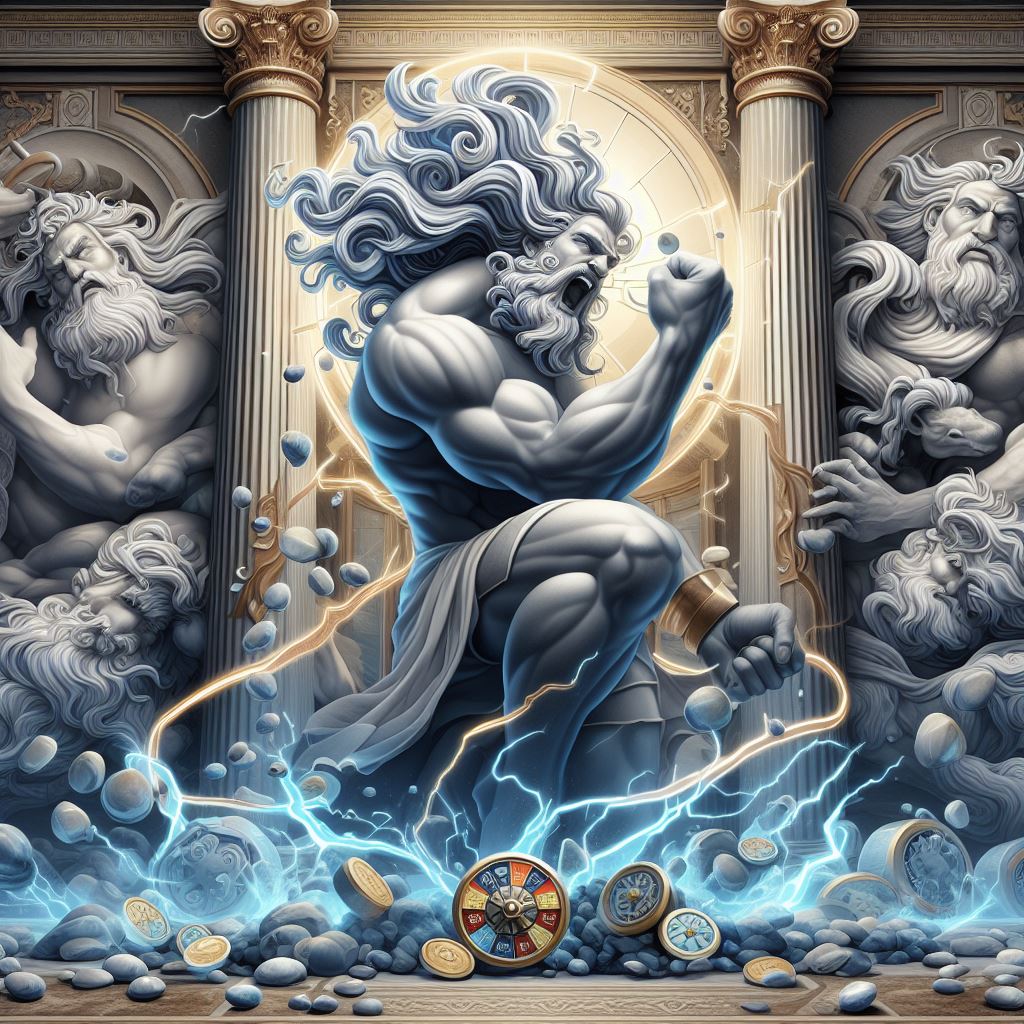Slot Online: Menguji Kecerdasan Anda merupakan judul dari sebuah artikel kami kali ini. Kami ucapkan Selamat datang di lybio.net, Menulis Narasi Kemenangan dari Setiap Taruhan. Pada kesempatan kali ini, kami masih bersemangat untuk membahas soal Slot Online: Menguji Kecerdasan Anda. Pendahuluan Di dunia perjudian online yang semakin berkembang, slot online telah menjadi daya tarik utama […]
Eksplorasi Tema Slot Online: Kisah di Balik Desain
Eksplorasi Tema Slot Online: Kisah di Balik Desain merupakan judul dari sebuah artikel kami kali ini. Kami ucapkan Selamat datang di lybio.net, Menulis Narasi Kemenangan dari Setiap Taruhan. Pada kesempatan kali ini, kami masih bersemangat untuk membahas soal Eksplorasi Tema Slot Online: Kisah di Balik Desain. Pendahuluan Dalam dunia perjudian daring yang semakin berkembang, slot […]
Slot Online dan Psikologi: Mengapa Tidak Bisa Berhenti Bermain?
Slot Online dan Psikologi: Mengapa Tidak Bisa Berhenti Bermain? merupakan judul dari sebuah artikel kami kali ini. Kami ucapkan Selamat datang di lybio.net, Menulis Narasi Kemenangan dari Setiap Taruhan. Pada kesempatan kali ini, kami masih bersemangat untuk membahas soal Slot Online dan Psikologi: Mengapa Tidak Bisa Berhenti Bermain? Pendahuluan Dalam era di mana teknologi semakin […]
Ulasan Lengkap: Slot Online dengan Tema Film Terbaik
Ulasan Lengkap: Slot Online dengan Tema Film Terbaik merupakan judul dari sebuah artikel kami kali ini. Kami ucapkan Selamat datang di lybio.net, Menulis Narasi Kemenangan dari Setiap Taruhan. Pada kesempatan kali ini, kami masih bersemangat untuk membahas soal Ulasan Lengkap: Slot Online dengan Tema Film Terbaik. Di dunia kasino online, slot bertema film merupakan salah […]
Etika Bermain Slot Online: Do’s and Don’ts
Etika Bermain Slot Online: Do’s and Don’ts merupakan judul dari sebuah artikel kami kali ini. Kami ucapkan Selamat datang di lybio.net, Menulis Narasi Kemenangan dari Setiap Taruhan. Pada kesempatan kali ini,kami masih bersemangat untuk membahas soal Etika Bermain Slot Online: Do’s and Don’ts. Pendahuluan Dalam era modern di mana teknologi telah meresap ke dalam setiap […]
Fitur Spesial di Zeus Slot Online: Free Spins, dan Multipliers
Fitur Spesial di Zeus Slot Online: Free Spins, dan Multipliers merupakan judul dari sebuah artikel kami kali ini. Kami ucapkan Selamat datang di lybio.net, Menulis Narasi Kemenangan dari Setiap Taruhan. Pada kesempatan kali ini, kami masih bersemangat untuk membahas soal Fitur Spesial di Zeus Slot Online: Free Spins, dan Multipliers. Pendahuluan Zeus Slot Online adalah […]
Mengapa Zeus Slot Online Populer di Kalangan Pemain Kasino
Mengapa Zeus Slot Online Populer di Kalangan Pemain Kasino merupakan judul dari sebuah artikel kami kali ini. Kami ucapkan Selamat datang di lybio.net, Menulis Narasi Kemenangan dari Setiap Taruhan. Pada kesempatan kali ini, kami masih bersemangat untuk membahas soal Mengapa Zeus Slot Online Populer di Kalangan Pemain Kasino. Pendahuluan Dalam dunia perjudian online yang penuh […]
Slot Zeus untuk Profesional: Bagaimana Mencapai Level Ekspert?
Slot Zeus untuk Profesional: Bagaimana Mencapai Level Ekspert? merupakan judul dari sebuah artikel kami kali ini. Kami ucapkan Selamat datang di lybio.net, Menulis Narasi Kemenangan dari Setiap Taruhan. Pada kesempatan kali ini, kami masih bersemangat untuk membahas soal Slot Zeus untuk Profesional: Bagaimana Mencapai Level Ekspert? Dalam dunia perjudian online, menjadi seorang ahli dalam permainan […]
Mengunjungi Dunia Kuno: Slot Zeus dan Cerita-Cerita Mitosnya
Mengunjungi Dunia Kuno: Slot Zeus dan Cerita-Cerita Mitosnya merupakan judul dari sebuah artikel kami kali ini. Kami ucapkan Selamat datang di lybio.net, Menulis Narasi Kemenangan dari Setiap Taruhan. Pada kesempatan kali ini, kami masih bersemangat untuk membahas soal Mengunjungi Dunia Kuno: Slot Zeus dan Cerita-Cerita Mitosnya. Pendahuluan Dalam perjalanan menyelami kebudayaan kun. Kita sering terpukau […]
Slot: Menemukan Rahasia Kemenangan dalam Mesin
Slot: Menemukan Rahasia Kemenangan dalam Mesin merupakan judul dari sebuah artikel kami kali ini. Kami ucapkan Selamat datang di lybio.net, Menulis Narasi Kemenangan dari Setiap Taruhan. Pada kesempatan kali ini, kami masih bersemangat untuk membahas soal Slot: Menemukan Rahasia Kemenangan dalam Mesin. Pendahuluan Slot telah lama menjadi ikon dalam industri perjudian, menarik pemain dengan janji-janji […]









